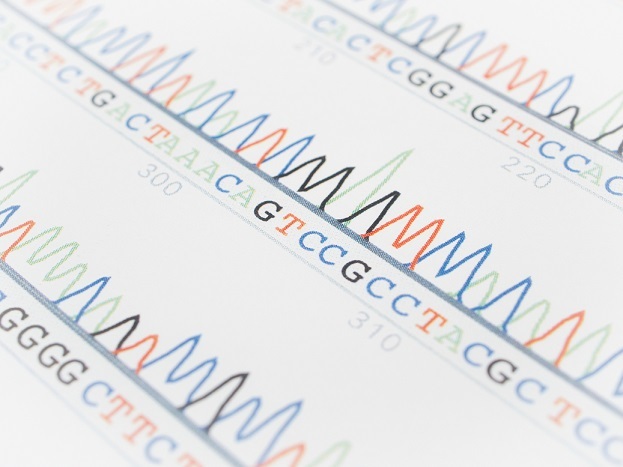
 Data Structure
Data Structure Networking
Networking RDBMS
RDBMS Operating System
Operating System Java
Java MS Excel
MS Excel iOS
iOS HTML
HTML CSS
CSS Android
Android Python
Python C Programming
C Programming C++
C++ C#
C# MongoDB
MongoDB MySQL
MySQL Javascript
Javascript PHP
PHP
- Selected Reading
- UPSC IAS Exams Notes
- Developer's Best Practices
- Questions and Answers
- Effective Resume Writing
- HR Interview Questions
- Computer Glossary
- Who is Who
Single Nucleotide Polymorphism (SNPs)
Introduction
Each human differs from the next by about 1 base pair in every 1000 base pairs. From these small genetic variations arises the human variety we are all aware of - differences in hair color, eyesight, allergies to medications, and even behavior. These variations are due to changes in the single nucleotide.
Therefore, single nucleotide polymorphism can be defined as the variation that arises due to the alteration of a single nucleotide (adenine, thymine, cytosine, and guanine) and prevails in at least 1% of the population. These SNPs act as molecular markers and help in the diagnosis of certain diseases.

Occurrence
Single nucleotide polymorphism can be present in the entire DNA of the person. On average they will be present at least once in 1000 nucleotides. They are generally found in the DNA between genes and act as molecular markers. If they occur in between the genes or regulatory sequences they can result in some diseases that affect the function of the gene.
Types of SNPs
There are basically two types of SNPs depending on the region they are found and their effect. They are ?
SNPs in the non-coding region.
SNPs in coding regions.
SNPs in Non-Coding Regions
They are named so because they are found in the non-coding region or regions between the genes. When SNP is found in such a region it may not affect the sequence of amino acids in protein, as genetic code is degenerate. But they can be elevated during cancer and also have a key role in gene expression.
SNPs in the Coding Region
when they are present in the coding region they may or may not pose a change in the amino acid sequence and hence proteins. Depending on this SNPs in the coding region can be of two types ?
Synonymous substitutions.
Non-synonymous substitutions.
Synonymous Substitution
They do not have any direct impact on the amino acid sequence and hence do not affect the resultant protein but it can show some other changes. In bacteria, a single mutation may help in the development of resistance against many drugs by not synthesizing any protein but just causing the folding of the membrane.
Non-synonymous Substitutions
They have a direct impact on protein synthesis. They can cause the synthesis of an incorrect protein or can lead to the formation of premature protein. Based on this criterion there are two types of non-synonymous substitutions:
Missense substitution: Any change in the single nucleotide sequence in the coding region may result in the formation of incorrect protein and its improper functioning may lead to some diseases or phenotypic changes like progeria.
Non-sense substitution: A change in nucleotide sequence can lead to the formation of premature protein due to the formation of premature stop codon on the transcribed mRNA, for example, cystic fibrosis.
Analysis of SNPs
SNPs can be analyzed through various methods like mass spectrometry, DNA sequencing, restriction fragment length polymorphism, capillary electrophoresis, hybridization, etc. due to the availability of only two alleles and three genotypes.
Applications of SNPs
Many interlinked SNPs can be easily identified from a single SNP by clustering DNA sequences or sets of alleles.
SNP array and whole genome sequencing can be used to generate genome-wise genetic data which in turn can be used to identify SNPs related to several diseases, traits, or phenotypes. These all are included in the genome-wide association study. Since this is based on genome-wide study that is why large sample size is required for the generation of the data.
SNPs can be used to study variations in the genes that are associated with diseases or phenotypic traits.
SNPs are used to study the cluster of genes that are transmitted from one organism to another, this phenomenon is known as genetic epidemiology.
SNPs have been widely used in STR-based DNA fingerprinting in which SNPs have been used to identify phenotypic traits like eye color, hair color, etc. But STRs have an advantage over SNPs in the fact that they do not depend on the database for the comparative examination of the samples.
They are used to study the mode of action of a particular medicine or drug and also used to test the effectiveness of that drug during the treatment. This field of study of drug action at the gene level is known as pharmacogenomics.
SNP in the coding regions may lead to several diseases due to altered proteins. So detailed study of these SNPs can provide insight into several diseases like type-2 diabetes, autoimmune diseases, psychiatric diseases, etc. they also help in determining the pathway for the disease treatment.
Conclusion
Mostly single nucleotide polymorphisms do not have any major impact on health and development of an organism. But in some cases when they are non-synonymous, they produce genetic differences which can be used to study human health.
They have been proven important in studies related to the risk of disease development, response to medications, etc. Ongoing research is in the field of plant breeding for the development of new traits useful for mankind.

